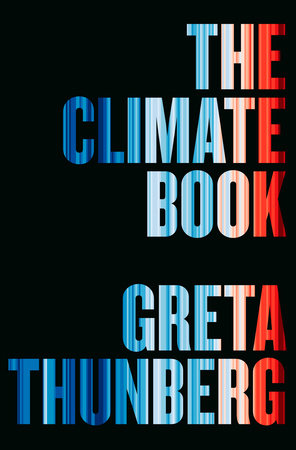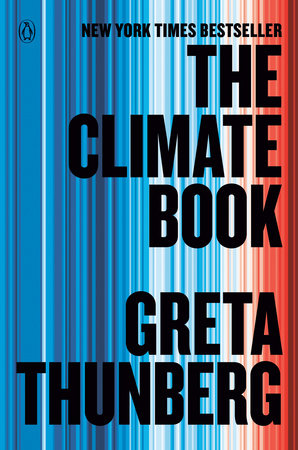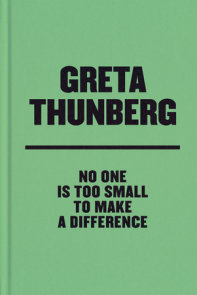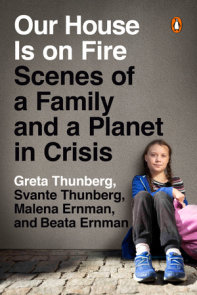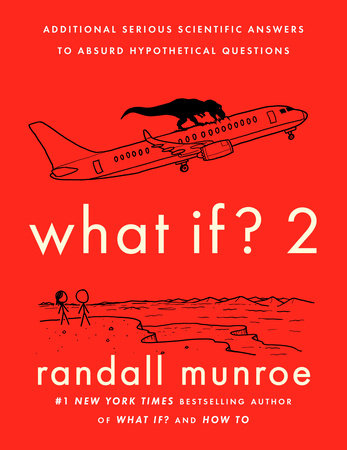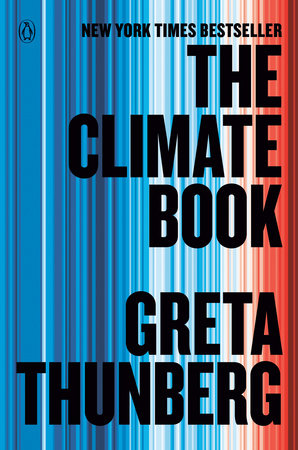

The Climate Book
By Greta Thunberg
By Greta Thunberg
By Greta Thunberg
By Greta Thunberg
By Greta Thunberg
By Greta Thunberg
By Greta Thunberg
Read by Amelia Stubberfield, Greta Thunberg, Nicholas Khan and Olivia Forrest
By Greta Thunberg
Read by Amelia Stubberfield, Greta Thunberg, Nicholas Khan and Olivia Forrest
Category: Science & Technology | Biography & Memoir
Category: Science & Technology | Biography & Memoir
Category: Science & Technology | Biography & Memoir
Category: Science & Technology | Biography & Memoir | Audiobooks

-
$20.00
Feb 13, 2024 | ISBN 9780593492321
-
$30.00
Feb 14, 2023 | ISBN 9780593492307
-
Feb 14, 2023 | ISBN 9780593492314
-
Feb 14, 2023 | ISBN 9780593629413
1032 Minutes
Buy the Audiobook Download:
YOU MAY ALSO LIKE
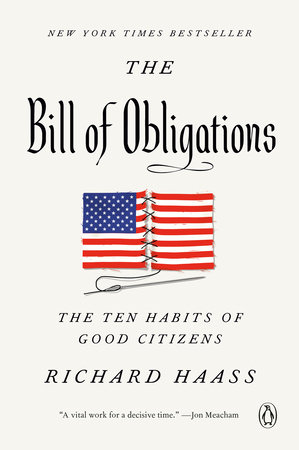
The Bill of Obligations
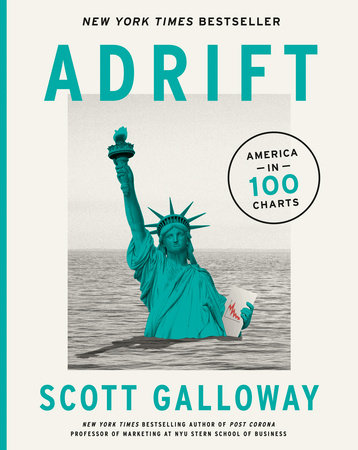
Adrift
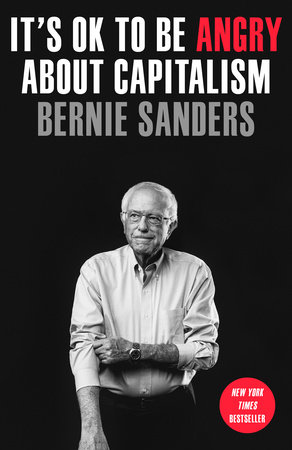
It’s OK to Be Angry About Capitalism
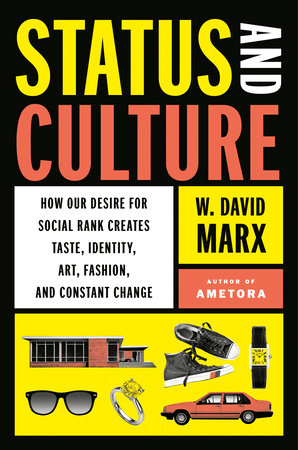
Status and Culture
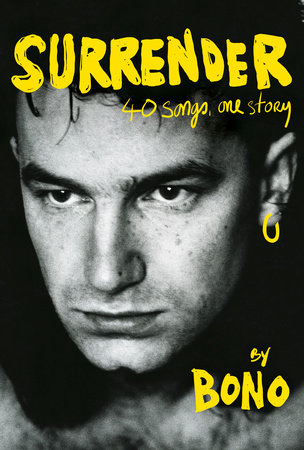
Surrender
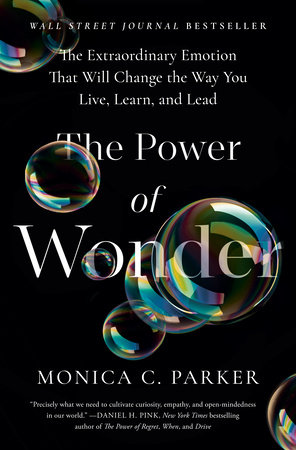
The Power of Wonder
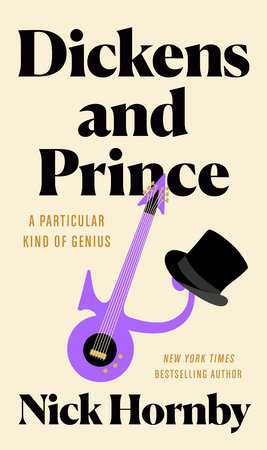
Dickens and Prince
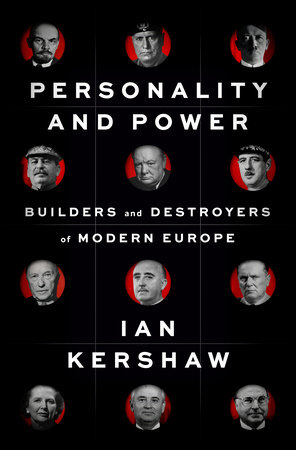
Personality and Power

The Vegan Chinese Kitchen
Praise
“A remarkable contribution to climate literature—and an urgent must-read.” —Los Angeles Review of Books
“Having curated Yale Climate Connections’ monthly bookshelf collection since early 2015, I was acquainted with over 1,000 books and reports that address climate change in some way . . . The Climate Book is the most ambitious, wide-ranging, and hard-hitting collection I have ever encountered.” —Yale Climate Connections
“The urgency to act now, to kick the addiction to fossil fuels, practically jumps off the page to punch you in the gut. So while not a pleasant read—it’s quite stressful—it’s a book I can’t recommend enough.” —Science News
“Stuffed with charts and graphs and photos . . . the book is sure to educate. . . . Hopefully billions of people read The Climate Book and enough of them rise up to demand change.” —Associated Press
“Impressively, in The Climate Book, Thunberg and team—which includes well-known names like Margaret Atwood, George Monbiot, Bill McKibben and Robin Wall Kimmerer—explain and offer action items in 84 compelling, bite-size chapters . . . The cumulative impact on my understanding of the crisis through [the book’s] data, cross-cultural reflections, and paths for step-by-step change became mesmerizing.” —NPR.org
“Impassioned . . . Thunberg gathers essays from scientists, journalists, and activists, starting with lucid and accessible explanations of the science of global warming and its possible effects . . . A comprehensive and articulate shock to the system.” —Publishers Weekly
“An urgent collection of writing by leaders in the fields of science, engineering, history, philosophy, and activism . . . Brilliant and alarming . . . Vital reading for anyone who cares about the planet.” —Kirkus (starred review)
“[A] sweeping compendium of essays contributed by more than 100 academicians, authors, environmentalists, and journalists whose specific professional expertise or profound humanitarian concern amplifies the existing science surrounding this crisis of sustainability and ecology. Yet among this esteemed roster of recognized voices, it is Thunberg’s own eloquence that elevates the collection with introductory essays for each section that convey a sense of urgency that is genuine, grounded, and unimpeachable.” —Booklist (starred review)
Table Of Contents
PART ONE /How Climate Works
1.1 ‘To solve this problem, we need to understand it’ / Greta Thunberg
1.2 The Deep History of Carbon Dioxide
Peter Brannen / Science journalist, contributing writer at the Atlantic and author of The Ends of the World.
1.3 Our Evolutionary Impact
Beth Shapiro / Professor of Ecology and Evolutionary Biology at University of California, Santa Cruz and author of Life as We Made It.
1.4 Civilization and Extinction
Elizabeth Kolbert / Staff writer for the New Yorker and the author, most recently, of Under a White Sky: The Nature of the Future.
1.5 ‘The science is as solid as it gets’ / Greta Thunberg
1.6 The Discovery of Climate Change
Michael Oppenheimer / Atmospheric scientist, Princeton University’s Professor of Geosciences and International Affairs and long-time IPCC author.
1.7 Why Didn’t They Act?
Naomi Oreskes / Professor of the History of Science and Affiliated Professor of Earth and Planetary Sciences at Harvard University.
1.8 Tipping Points and Feedback Loops
Johan Rockström / Director of the Potsdam Institute for Climate Impact Research and Professor at Potsdam University.
1.9 ‘This is the biggest story in the world’ / Greta Thunberg
PART TWO / How Our Planet Is Changing
2.1 ‘The weather seems to be on steroids’ / Greta Thunberg
2.2 Heat
Katharine Hayhoe / Endowed Chair and Distinguished Professor at Texas Tech University and author of Saving Us.
2.3 Methane and Other Gases
Zeke Hausfather / Climate research lead at Stripe, research scientist at Berkeley Earth.
2.4 Air Pollution and Aerosols
Bjørn H. Samset / Senior researcher at CICERO Centre for International Climate Research, an IPCC lead author, and expert on the effects of non-CO2 emissions.
2.5 Clouds
Paulo Ceppi / Lecturer in climate science at the Grantham Institute and the Department of Physics at Imperial College London.
2.6 Arctic Warming and the Jet Stream
Jennifer Francis / Senior scientist at the Woodwell Climate Research Center and formerly Research Professor in Marine and Coastal Sciences at Rutgers University.
2.7 Dangerous Weather
Friederike Otto / Senior lecturer in Climate Science at the Grantham Institute at Imperial College London and co-lead of World Weather Attribution.
2.8 ‘The snowball has been set in motion’ / Greta Thunberg
2.9 Droughts and Floods
Kate Marvel / Climate scientist at the Columbia University Center for Climate Systems Research and the NASA Goddard Institute for Space Studies.
2.10 Ice Sheets, Shelves and Glaciers
Ricarda Winkelmann / Professor of Climate System Analysis at the Potsdam Institute for Climate Impact Research and the University of Potsdam.
2.11 Warming Oceans and Rising Seas
Stefan Rahmstorf / Head of Earth System Analysis at the Potsdam Institute and Professor of Physics of the Oceans at the University of Potsdam.
2.12 Acidification and Marine Ecosystems
Hans-Otto Pörtner / Climatologist, physiologist, Professor and Head of the Department of Integrative Ecophysiology at the Alfred Wegener Institute.
2.13 Microplastics
Karin Kvale / Senior researcher at GNS Science and expert in modelling the role of marine ecology in global biogeochemical cycles.
2.14 Fresh Water
Peter H. Gleick / Co-founder and president-emeritus of the Pacific Institute, member US National Academy of Sciences, hydroclimatologist.
2.15 ‘It is much closer to home than we think’ / Greta Thunberg
2.16 Wildfires
Joëlle Gergis / Senior lecturer in Climate Science at the Australian National University and lead author on the IPCC Sixth Assessment Report.
2.17 The Amazon
Carlos A. Nobre / Earth System scientist on the Amazon, Chair of the Science Panel for the Amazon and the convener of the Amazonia 4.0 project.
Julia Arieira / Plant Ecologist and Earth system scientist at Brazil’s Federal University of Espírito Santo.
Nathália Nascimento / Geographer and Earth system scientist at Brazil’s Federal University of Espírito Santo.
2.18 Boreal and Temperate Forests
Beverly E. Law / Professor Emeritus of Global Change Biology and Terrestrial Systems Science at Oregon State University.
2.19 Terrestrial Biodiversity
Adriana De Palma / World Economic Forum Young Scientist and senior researcher at the Natural History Museum in London.
Andy Purvis / Biodiversity researcher at the Natural History Museum in London; led a chapter of the first IPBES Global Assessment of Biodiversity & Ecosystem Services.
2.20 Insects
Dave Goulson / Professor of Biology at the University of Sussex; author of over
400 scientific articles on insect ecology and, among other books, Silent Earth.
2.21 Nature’s Calendar
Keith W. Larson / Ecologist researching environmental change in the Arctic and Director of the Arctic Centre at Umeå University.
2.22 Soil
Jennifer L. Soong / Soil carbon scientist at Corteva; affiliate scientist at Colorado State University and Lawrence Berkeley National Laboratory.
2.23 Permafrost
Örjan Gustafsson / Professor in Biogeochemistry at Stockholm University, and elected Fellow of the Royal Swedish Academy of Sciences.
2.24 What Happens at 1.5, 2 and 4°C of Warming?
Tamsin Edwards / Climate scientist at King’s College London, an IPCC lead author and science communicator specializing in uncertainties in sea-level rise.
PART THREE /
How It Affects Us
3.1 ‘The world has a fever’ / Greta Thunberg
3.2 Health and Climate
Tedros Adhanom Ghebreyesus / Director-general of the World Health Organization.
3.3 Heat and Illness
Ana M. Vicedo-Cabrera / Environmental epidemiologist, leader of the Climate Change and Health research group at the University of Bern.
3.4 Air Pollution
Drew Shindell / Climate scientist and Distinguished Professor at Duke University’s Nicholas School of the Environment, author on multiple IPCC Assessments.
3.5 Vector-borne Diseases
Felipe J. Colón-González / Assistant Professor at the Department of Infectious Disease Epidemiology, London School of Hygiene and Tropical Medicine.
3.6 Antibiotic Resistance
John Brownstein / Chief innovation officer, Boston Children’s Hospital; Professor of Biomedical Informatics and Pediatrics, Harvard Medical School.
Derek MacFadden / Clinician scientist at the Ottawa Hospital; Junior Clinical Research Chair in Antibiotic Use and Antibiotic Resistance at the University of Ottawa, Canada.
Sarah McGough / Infectious disease epidemiologist, Harvard T. H. Chan School of Public Health.
Mauricio Santillana / Professor of Physics, Northeastern University, and Adjunct Professor of Epidemiology, Harvard T. H. Chan School of Public Health.
3.7 Food and Nutrition
Samuel S. Myers / Principal research scientist, Harvard T. H. Chan School of Public Health and Director, Planetary Health Alliance.
3.8 ‘We are not all in the same boat’ / Greta Thunberg
3.9 Life at 1.1°C
Saleemul Huq / Director of the International Centre for Climate Change and Development at the Independent University, Bangladesh.
3.10 Environmental Racism
Jacqueline Patterson / Founder and Executive Director of the Chisholm Legacy Project, a resource hub for Black front-line climate justice leadership.
3.11 Climate Refugees
Abrahm Lustgarten / Investigative reporter for ProPublica and the New York Times Magazine; author of a forthcoming book about climate-driven migration in the US.
3.12 Sea-level Rise and Small Islands
Michael Taylor / Caribbean climate scientist, IPCC lead author, professor and dean of the Faculty of Science and Technology, the University of the West Indies, Mona.
3.13 Rain in the Sahel
Hindou Oumarou Ibrahim / Indigenous woman, geographer and coordinator of the Association of Indigenous Women and Peoples of Chad; UN Sustainable Development Goals advocate.
3.14 Winter in Sápmi
Elin Anna Labba / Sámi journalist and writer working with Indigenous literatures at Tjállegoahte in Jokkmokk, Sweden.
3.15 Fighting for the Forest
Sônia Guajajara / Brazilian Indigenous activist, environmentalist and politician, and coordinator of the Association of Indigenous People of Brazil.
3.16 ‘Enormous challenges are waiting’ / Greta Thunberg
3.17 Warming and Inequality
Solomon Hsiang / Scientist and economist, Professor and Director of the Global Policy Laboratory at UC Berkeley; co-founder of the Climate Impact Lab.
3.18 Water Shortages
Taikan Oki / Global hydrologist, former Senior Vice-Rector of the United Nations University, and an IPCC Coordinating Lead Author.
3.19 Climate Conflicts
Marshall Burke / Associate Professor in the Department of Earth System Science at Stanford University and co-founder of Atlas AI.
3.20 The True Cost of Climate Change
Eugene Linden / Journalist and author; his most recent book on climate change is Fire and Flood. Previously, The Winds of Change won a Grantham Award.
PART FOUR /What Done We’ve About It
4.1 ‘How can we undo our failures if we are unable to admit that we have failed?’ / Greta Thunberg
4.2 The New Denialism
Kevin Anderson / Professor of Energy and Climate Change at the Universities of Manchester, Uppsala and Bergen.
4.3 The Truth about Government Climate Targets
Alexandra Urisman Otto / Climate reporter at the Swedish newspaper Dagens Nyheter and co-author of Gretas resa (Greta’s Journey).
4.4 ‘We are not moving in the right direction’ / Greta Thunberg
4.5 The Persistence of Fossil Fuels
Bill McKibben / Founder of the environmental organizations 350.org and Third Act and author of more than a dozen books, including The End of Nature and Eaarth.
4.6 The Rise of Renewables
Glen Peters / Research Director at the Centre for International Climate Research in Oslo; member of the executive team of the Global Carbon Budget; an IPCC lead author.
4.7 How Can Forests Help Us?
Karl-Heinz Erb / An IPCC lead author, Director of the Institute of Social Ecology and associate Professor at the University of Natural Resources and Life Sciences, Vienna.
Simone Gingrich / Assistant Professor, Institute of Social Ecology, University of Natural Resources and Life Sciences, Vienna.
4.8 What about Geoengineering?
Niclas Hällström / Director of WhatNext?, President of the ETC Group, and senior affiliate at Centre for Environment and Development Studies, Uppsala University.
Jennie C. Stephens / Dean’s Professor of Sustainability Science and Policy at Northeastern University, and author of Diversifying Power.
Isak Stoddard / PhD candidate in Natural Resources and Sustainable Development at the Department of Earth Sciences, Uppsala University.
4.9 Drawdown Technologies
Rob Jackson / Earth scientist at Stanford University and Chair of the Global Carbon Project.
4.10
‘A whole new way of thinking’ / Greta Thunberg
4.11 Our Imprint on the Land
Alexander Popp / Senior scientist at the Potsdam Institute for Climate Impact Research and leader of a research group on land-use management.
4.12 The Calorie Question
Michael Clark / Environmental scientist at the University of Oxford, focusing on food systems’ contribution to climate, biodiversity and well-being.
4.13 Designing New Food Systems
Sonja Vermeulen / Director of Programs at CGIAR, and Associate at Chatham House.
4.14 Mapping Emissions in an Industrial World
John Barrett / Professor in Energy and Climate Policy, University of Leeds, government advisor to DEFRA and an IPCC lead author.
Alice Garvey / Researcher at the Sustainability Research Institute, University of Leeds.
4.15 The Technical Hitch
Ketan Joshi / Freelance writer, analyst and communications consultant, who has previously worked for a variety of Australian and European climate organizations.
4.16 The Challenge of Transport
Alice Larkin / Vice-Dean and Head of School of Engineering and a Professor of Climate Science and Energy Policy at the Tyndell Centre, University of Manchester.
4.17 Is the Future Electric?
Jillian Anable / Co-director of the University of Oxford’s CREDS Centre for Research in energy demand solutions.
Christian Brand / Co-director of UK Energy Research Centre and Associate Professor at University of Oxford. Author of Personal Travel and Climate Change.
4.18
‘They keep saying one thing while doing another’ / Greta Thunberg
4.19 The Cost of Consumerism
Annie Lowrey / Staff writer at the Atlantic, covering economic policy, and author of Give People Money.
4.20 How (Not) to Buy
Mike Berners-Lee / Professor at Lancaster University’s Environment Centre, Director of Small World Consulting Ltd and author of There Is No Planet B.
4.21 Waste around the World
Silpa Kaza / Senior urban development specialist in the World Bank’s Urban, Disaster Risk Management, Resilience and Land Global Practice.
4.22 The Myth of Recycling
Nina Schrank / Senior campaigner for the Plastics Team at Greenpeace UK.
4.23 ‘This is where we draw the line’ / Greta Thunberg
4.24 Emissions and Growth
Nicholas Stern / Professor of Economics and Government; Chair of
the Grantham Research Institute, London School of Economics and Political Science.
4.25 Equity
Sunita Narain / Director-general of the Centre for Science and Environment, a not-for-profit public interest research and advocacy organization based in New Delhi.
4.26 Degrowth
Jason Hickel / Economic anthropologist, author and Professor at the Institute for Environmental Science and Technology at the Autonomous University of Barcelona.
4.27 The Perception Gap
Amitav Ghosh / Author of sixteen works of fiction and non-fiction; the first
English-language writer to receive India’s highest literary honour, the Jnanpith Award.
PART FIVE / What We Must Do Now
5.1 ‘The most effective way to get out of this mess is to educate ourselves’ / Greta Thunberg
5.2 Individual Action, Social Transformation
Stuart Capstick / An environmental social scientist based at Cardiff University and Deputy Director of the Centre for Climate Change and Social Transformations. Lorraine Whitmarsh / Professor of Environmental Psychology, University of Bath; Director of the Centre for Climate Change and Social Transformations.
5.3 Towards 1.5°C Lifestyles
Kate Raworth / Co-founder of Doughnut Economics Action Lab and Senior Associate at Oxford University’s Environmental Change Institute.
5.4 Overcoming Climate Apathy
Per Espen Stoknes / A psychologist, TEDGlobal speaker and Co-director of the Centre for Sustainability at the Norwegian Business School.
5.5 Changing Our Diets
Gidon Eshel / Professor of environmental physics at Bard College, New York.
5.6 Remembering the Ocean Ayana Elizabeth Johnson / Marine biologist, co-founder of the policy think tank Urban Ocean Lab, co-editor of All We Can Save, and co-creator of How to Save a Planet.
5.7 Rewilding
George Monbiot / Writer, film-maker and environmental activist; author of a weekly column for the Guardian as well as various books and videos.
Rebecca Wrigley / Founder and Chief Executive of Rewilding Britain and has worked in conservation and community development for thirty years.
5.8 ‘We now have to do the seemingly impossible’ / Greta Thunberg
5.9 Practical Utopias
Margaret Atwood / Booker Prize–winning author of more than fifty books of fiction, poetry and critical essays.
5.10 People Power
Erica Chenoweth / Political scientist, Professor at Harvard University.
5.11 Changing the Media Narrative
George Monbiot / Writer, film-maker and environmental activist; author of a weekly column for the Guardian as well as various books and videos.
5.12 Resisting the New Denialism
Michael E. Mann / Atmospheric Science at Penn State, IPCC contributor, and author of many books, including The New Climate War.
5.13 A Genuine Emergency Response
Seth Klein / Team lead with the Climate Emergency Unit and author of A Good War: Mobilizing Canada for the Climate Emergency.
5.14 Lessons from the Pandemic
David Wallace-Wells / New York Times Opinion writer and magazine columnist. Author of The Uninhabitable Earth.
5.15 ‘Honesty, solidarity, integrity and climate justice’ / Greta Thunberg
5.16 A Just Transition
Naomi Klein / Journalist and bestselling author; UBC Professor of Climate Justice and Co-director of the Centre for Climate Justice at the University of British Columbia.
5.17 What Does Equity Mean to You
Nicki Becker / Law student and climate justice activist from Argentina. Co-founder of Jovenes por el Clima; active in Fridays For Future MAPA.
Disha A. Ravi / Indian climate and environmental justice activist and writer. Hilda Flavia Nakabuye / Climate and environmental rights activist who founded Uganda’s Fridays For Future movement.
Laura Verónica Muñoz / Ecofeminist from the Colombian Andean mountains involved in Fridays For Future, Pacto X el Clima and Unite for Climate Action. Ina Maria Shikongo / Mother, climate justice activist and poet active in the Fridays For Future International movement.
Ayisha Siddiqa / Pakistani-American storyteller, climate justice advocate and Co-founder of Polluters Out and Fossil Free University.
Mitzi Jonelle Tan / Full-time climate justice activist based in the Philippines involved with Youth Advocates for Climate Action Philippines and Fridays For Future.
5.18 Women and the Climate Crisis
Wanjira Mathai / Kenyan environmentalist and activist, and Vice-President and Regional Director for Africa at the World Resources Institute.
5.19 Decarbonization Requires Redistribution
Lucas Chancel / Co-director of the World Inequality Lab at the Paris School of Economics and Affiliate Professor at Sciences Po.
Thomas Piketty / Professor at EHESS and the Paris School of Economics, Co-director of the World Inequality Lab and the World Inequality Database.
5.20 Climate Reparations
Olúfé. mi O. Táíwò / Assistant Professor of Philosophy at Georgetown University, and author of Reconsidering Reparations and Elite Capture.
5.21 Mending Our Relationship with the Earth
Robin Wall Kimmerer / SUNY Distinguished Teacher of Environmental Biology, founder and Director of the Center for Native Peoples and the Environment.
5.22 ‘Hope is something you have to earn’ / Greta Thunberg
21 Books You’ve Been Meaning to Read
Just for joining you’ll get personalized recommendations on your dashboard daily and features only for members.
Find Out More Join Now Sign In








